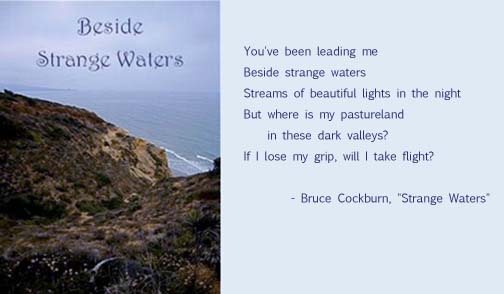Hannah Arendt, the philisopher who wrote
The Origins of Totalitarianism, survived Nazism primarily because she fled to Czechoslovakia in 1933. She was a woman who knew how to read the handwriting on the wall.
After WWII, she "told a television interviewer... that everyone had known from the start how dangerous Nazi Germany was, but knowing it in theory was one thing, while acting on it and turning it into 'personal destiny' was another" (Bakewell 95).
Today, most of us know that the coronavirus is dangerous, yet whenever I go into town, I see people not wearing masks. They haven't yet made protecting themselves and others part of their own "personal destiny."
 |
| https://ensia.com/features/flood-survivors-victims-organize-for-change/ |
Similarly, people living near coastlines are generally aware of sea level rise, yet many have chosen to stay in these areas, raising their houses a dozen feet without realizing that someday flooded streets and dysfunctional sewers may make their homes uninhabitable. Perhaps, like the citizens of Tokyo once did, they plan to use a boat to travel to work, school, and shopping. Or perhaps they believe that their local government's mitigation efforts will be enough. A strategic response to climate change is not yet part of their personal destinies either.
Research has shown us that humans are terrible at calculating long-term risks. We really, really want rewards now, even if we'd get better outcomes by being patient or denying ourselves in the short term. We overestimate immediate threats and underestimate less obvious dangers. We trust our anecdotal accounts and our friends' experiences over statistics.
The United States is at a crossroads. We can choose to rush into re-opening the economy without sufficient coronavirus testing for a short-term benefit of getting people back to work more quickly at the risk of long-term detriments:
- new waves of the disease
- widespread illness
- prolonged recovery and post-infection quarantines that reduce productivity
- high numbers of deaths
- unpredictable, prolonged school and business closures when employees become infected
- high cost of cleaning and disinfecting before re-opening every time someone gets sick
Likewise, we can continue to emit greenhouse gases, and gain the short-term benefits of continuing to live comfortably for a while as:
- our cities flood
- our homes become worthless
- farm land turns to salt marsh
- hurricanes and tornadoes destroy homes and lives
- floods cause late planting and crop failure
- fires ravage the hotter, drier regions of every continent
Or we can choose to plan for a future in which cities and farms continue to thrive, sustainable economies expand instead of contracting, and we do not die in great numbers from political upheaval, famine, or disease.
It's one thing to know what's dangerous. It's another to act before it's too late.
What's your personal destiny? What's the destiny of your nation?
WORKS CITED
Bakewell, Sarah. At the Existentialist Cafe. New York: Other Press, 2016.
Foy, George Michaelsen. "Humans Can't Plan Long-Term and Here's Why." Psychology Today. 25 June 2018. <https://www.psychologytoday.com/us/blog/shut-and-listen/201806/humans-cant-plan-long-term-and-heres-why>
King, Dr. Matthew Wilburn. "How Brain Biases Prevent Climate Action." BBC. <https://www.bbc.com/future/article/20190304-human-evolution-means-we-can-tackle-climate-change>









